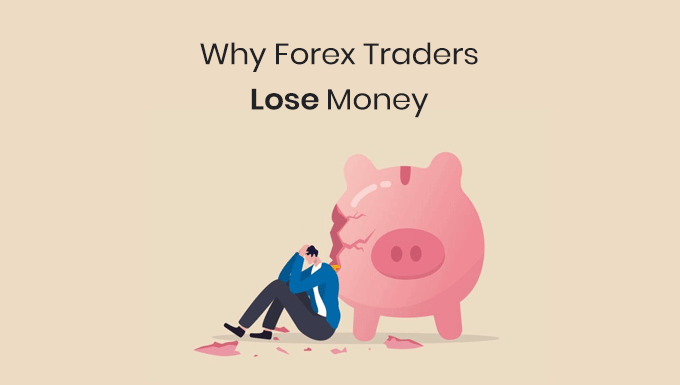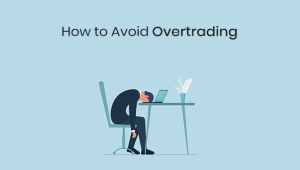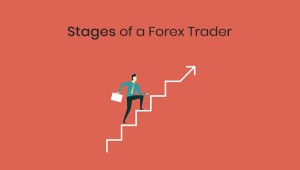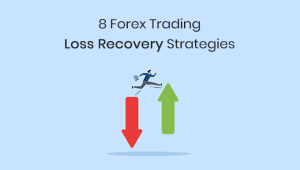In the world of forex trading, making mistakes is almost unavoidable. Even experienced traders make mistakes, which can be costly. However, knowing how to recognize and correct them can make a significant difference in your trading success. In this article, we will discuss some of the most common forex trading mistakes and how to avoid them.
15 Forex Trading Mistakes That Will Cost You Money
1. Trading without a plan
One of the most common forex trading mistakes is the lack of proper planning. Traders often enter the market without a clear plan, leading to impulsive and emotional decisions. This can result in losses and missed opportunities.
To avoid this mistake, it is essential to create a trading plan before entering the market. A trading plan should include entry and exit points, risk management strategies, and profit targets. It should also consider the trader’s risk tolerance, trading style, and financial goals.
Once a trading plan is created, it is crucial to stick to it. Many traders make the mistake of deviating from their plan, which can lead to poor trading outcomes. By following a trading plan, traders can make informed and objective decisions.
2. Chasing losses
Chasing losses is a common forex trading mistake. Traders who chase losses often try to recover losses by increasing trade size, leading to further losses.
To avoid chasing losses, traders should accept losses as part of trading and avoid the temptation to make impulsive decisions. Traders should also focus on their trading plan and risk management strategies, which can help minimize losses.
3. Insufficient start-up capital
You need a decent amount of money to start with if you want to make enough money to be worth it AND keep your risk low.
A $1000 is a good amount to start with if you want to trade micro lots. Otherwise, you’re simply setting yourself up for failure.
If you don’t have enough money, it may be worth it to save up until you do. In the meantime, you can use a demo account to practice your skills and learn more about Forex until you are ready to trade for real.
4. Ignoring the importance of a demo account
Your broker gives you a practice account so you can get used to the forex market and trading platform, as well as build and test a good forex trading strategy. All this without actually risking any money!
Use all of the features of your demo account and learn as much as you can about the Forex market before switching to a real account. They say that “practice makes perfect” for a reason!
5. Improper mindset
People are naturally emotional, but letting emotions get in the way of trading can be a disaster. Nearly every book on forex trading psychology stresses the importance of being more disciplined and less emotional. When you trade, your emotions will always come into play. How you handle your feelings will determine whether you win or lose.
6. Looking for the Holy Grail
Traders who jump from one method, system, indicator, or service to another in search of a perfect solution they can use right away usually end up disappointed. If this sounds like you, stop what you’re doing.
7. Poor risk management
Risk management is crucial in forex trading. However, this is one of the biggest forex trading mistakes both novice and experienced traders make. Traders who neglect risk management often trade without a clear plan and ignore stop-loss orders, leading to significant losses. The most important thing is to secure your capital. Risking too much money on each trade is a big reason why forex traders lose money quickly. Trading is more like a marathon than a sprint.
Managing your risks is the key to making money in Forex trading. You can be a good trader and still lose everything if you don’t know how to manage risks. You must not only follow a strong Forex trading strategy in order to earn, but you must also minimize losses in order to maintain your capital.
To avoid this mistake, traders should use risk management strategies such as stop loss orders, position sizing, and diversification. Traders should also have a clear understanding of their risk tolerance and avoid taking excessive risks. Automatic take-profit and stop-loss methods are built into trading platforms for a reason. You should use them!
8. Holding on to losing trades
Again, the old “but I don’t like to lose” argument. People tend to hold on to losses in the hope that they will bounce back. You will make some bad trades, so get used to it. Focusing on how you deal with a loss instead of trying to avoid it will put you ahead of the game.
On the other hand, traders often get out of winning trades too soon so they don’t have to deal with “giving profits back.” If you want to lose money trading, all you have to do is hold on to your losses and get rid of your winners. In trading, making money is much more important than being right. To make money, you need to cut your losses early and let your winners keep working for you.
9. Overtrading
This one’s easy. If you’re trading just for the sake of trading, you’re overtrading. You trade because you see real opportunities in the market. Trading isn’t like a 9-to-5 job where you get paid more if you work hard all the time. You don’t get paid to sit around and push buttons all day. You get paid to make good trades that make money. It’s really that simple.
To avoid overtrading, traders should stick to their trading plan and use proper risk management strategies. Even if the markets are moving, that doesn’t mean you have to trade. When the time is right, you should trade. Be patient, wait for setups, and when they happen, act. Traders should also limit the number of trades they make and avoid trading out of boredom or frustration. By trading less and focusing on quality over quantity, traders can increase their chances of success.
10. Not taking trading seriously
I’m often confused by how people approach trading differently than they do any other way to make money. Trading is a business, and it takes time to learn how to do it well, just like most jobs. People spend years in school to become doctors, but many people who call themselves “hobby traders” think that reading a few “For Dummies” books or looking at some indicators is enough. This way of trading is like throwing darts at the wall while blindfolded. Avoid shortcuts and scams. Trading is not simple, and it takes time and effort to learn.
11. Failure to control emotions
Emotions such as fear, greed, and excitement can have a significant impact on trading decisions. Emotional trading often leads to impulsive and irrational decisions, resulting in losses.
To control emotions, traders should be aware of their emotions and how they affect their trading decisions. Traders should also use techniques such as meditation, breathing exercises, and visualization to calm their minds. It is also essential to have realistic expectations and avoid the temptation to chase profits.
12. There are bad days
Some things are just out of your control. You could spend hours getting ready for a trade, but an unexpected event in the market, a market crash, a bug in your platform, or a natural disaster could turn the odds against you.
It’s okay. It’s all a part of the game. If you’ve used proper money management techniques and managed your risk well, you can just say it was a bad day and start over tomorrow.
13. Poor Forex broker selection
Not every Forex broker is the same. Before choosing a forex broker and opening a real account, make sure they are fully regulated and trustworthy. Then, look into their forex trading conditions, account types, and leverage to make sure that they can help you reach your trading goals.
14. Failure to analyze the market
Many traders make the mistake of neglecting market analysis. Market analysis involves evaluating economic and geopolitical factors that may affect currency values. Without proper market analysis, traders may miss trading opportunities or make impulsive decisions.
To avoid this mistake, traders should use a combination of fundamental and technical analysis. Fundamental analysis involves evaluating economic and geopolitical factors, while technical analysis involves analyzing charts and indicators to identify trading opportunities.
15. Lack of discipline
Discipline is a key element in forex trading. Traders who lack discipline often make impulsive decisions and fail to follow their trading plan.
To avoid this mistake, traders should cultivate discipline by sticking to their trading plan, avoiding emotional trading decisions, and taking breaks when needed. Traders should also avoid trading out of boredom or frustration and focus on quality over quantity.
Final thoughts
Forex trading mistakes can be costly and can hinder a trader’s success. However, by avoiding common mistakes such as lack of proper planning, overtrading, and failure to control emotions, traders can increase their chances of success. Do your homework, learn about the forex market, and be ready to adapt. Traders should also focus on proper risk management, market analysis, trading psychology, discipline, money management, and education. Be sure to make detailed trading plans and manage risk, and before you know it, you’ll be on your way to good capital management and making money!






